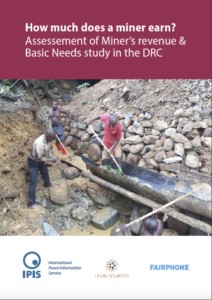Understanding how much coal miners make involves considering various factors, from location and experience to the type of mining operation. This article delves into the earnings of coal miners, exploring the elements that influence their income and providing a comprehensive overview of their financial situations.
Coal mining remains a vital industry in many regions, offering employment opportunities to thousands. However, the financial rewards can vary significantly. Let’s examine the average earnings, influencing factors, and the overall economic landscape for coal miners.
Average Coal Miner Salary
The average salary for coal miners can fluctuate based on several variables. According to recent data, the median annual wage for coal mining occupations in the United States was around $50,000 to $70,000. However, this figure can be higher or lower depending on experience, location, and the specific role within the mining operation.
Entry-level positions, such as general laborers or helpers, typically earn less than experienced miners or those in specialized roles like machine operators or supervisors. Geographic location also plays a significant role, with some states offering higher wages due to stronger union representation or more challenging working conditions.
Factors Influencing Coal Miner Income
Several key factors can impact how much coal miners make. These include:
Experience and Skill Level
As with most professions, experience significantly influences earning potential. Miners with years of experience and specialized skills, such as operating heavy machinery or managing mining operations, command higher salaries. Advanced certifications and ongoing training can also lead to increased pay.
Geographic Location
The location of the coal mine is a crucial determinant of salary. States with a strong presence of unionized mines often offer better wages and benefits compared to non-unionized states. Additionally, regions with higher living costs may compensate miners with higher salaries to offset these expenses.
Type of Mining Operation
The type of mining operation, whether it’s surface mining or underground mining, can affect earnings. Underground mining, which is generally more hazardous and requires specialized skills, often pays more than surface mining. The size and profitability of the mining company also play a role, with larger, more successful companies typically offering better compensation packages.
Union Membership
Union membership can significantly impact a coal miner’s income and benefits. Unions negotiate collective bargaining agreements that often include higher wages, better health insurance, and retirement plans. Unionized miners typically earn more than their non-union counterparts and have stronger job security.
Regional Variations in Coal Miner Salaries
Coal miner salaries vary significantly by region. States with a long history of coal mining and strong union presence, such as West Virginia, Kentucky, and Pennsylvania, often offer competitive wages. However, even within these states, there can be variations based on local market conditions and the specific mining company.
For example, in states like Wyoming and Montana, where surface mining is more common, wages may be slightly lower than in states with predominantly underground mining operations. Understanding these regional differences is essential for anyone considering a career in coal mining.
The Role of Unions in Coal Miner Compensation
Unions play a critical role in advocating for fair wages, benefits, and working conditions for coal miners. The United Mine Workers of America (UMWA) is one of the most prominent unions in the industry, representing miners across the United States and Canada.
Through collective bargaining, unions negotiate contracts that establish wage scales, health insurance coverage, retirement plans, and safety protocols. These agreements help ensure that miners receive fair compensation for their labor and have access to essential benefits.
Comparing Coal Miner Salaries to Other Industries
When evaluating how much coal miners make, it’s helpful to compare their earnings to those in other industries. While coal mining can be a physically demanding and hazardous occupation, the salaries often reflect the risks and challenges involved.
Compared to other blue-collar jobs, such as construction workers or truck drivers, coal miners often earn competitive wages, particularly in unionized positions. However, the long-term job security in coal mining can be uncertain due to environmental concerns and the shift towards renewable energy sources.
The Impact of Market Conditions on Coal Miner Earnings
Market conditions, including the demand for coal and global energy prices, can significantly impact coal miner earnings. When demand for coal is high, mining companies may increase production and offer overtime opportunities, leading to higher pay for miners.
 Coal Miners
Coal Miners
Alt: Artisanal and small-scale mining (ASM) miners working at a mine site.
Conversely, when demand for coal declines, mining companies may reduce production, lay off workers, or cut wages. Economic downturns and shifts in energy policies can also lead to job losses and reduced earning potential for coal miners.
Strategies for Increasing Coal Miner Income
Coal miners can take several steps to increase their income and improve their financial prospects. These include:
Pursuing Advanced Training and Certifications
Investing in advanced training and certifications can enhance a miner’s skills and make them more valuable to employers. Certifications in areas such as machine operation, safety management, or mine supervision can lead to higher-paying positions.
Joining a Union
Joining a union can provide access to collective bargaining agreements that offer better wages, benefits, and job security. Union membership can also provide opportunities for professional development and advocacy for miners’ rights.
Seeking Opportunities in Higher-Paying Regions
Relocating to regions with higher coal miner salaries can significantly boost earning potential. States with a strong union presence or a high demand for coal may offer better compensation packages.
Negotiating for Better Pay and Benefits
Miners should be prepared to negotiate for better pay and benefits when accepting a new job or renewing an employment contract. Researching industry standards and understanding their value to the company can help miners advocate for fair compensation.
Conclusion
Determining how much coal miners make involves a complex interplay of factors, including experience, location, type of mining operation, and union membership. While the profession can be physically demanding and hazardous, it often offers competitive wages and benefits, particularly in unionized positions. By understanding the factors that influence their income and taking proactive steps to improve their skills and negotiate for better pay, coal miners can enhance their financial security and build a successful career in the industry.
